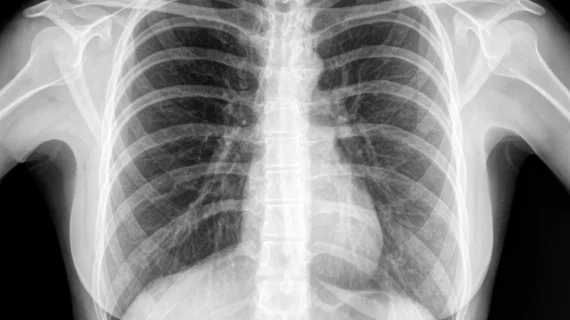GE Healthcare unveils portable X-ray system to help alleviate strain on technologists
GE Healthcare has released a new portable system to help relieve some of the physical pressures providers face when performing digital X-ray exams, the company announced Wednesday.
Research shows that more than 70% of radiologic technologists suffer some form of musculoskeletal stress and strain injuries during their careers. GE’s new AMX Navigate system improves the user experience by reducing the number of interactions required to set up and process exams.
The healthcare giant says its solution can reduce the physical effort needed to complete an X-ray by nearly 70%.
“I have been an X-ray technologist for nearly 30 years and have experience with the strain that occurs from performing multiple X-ray exams daily,” Jennifer Murphy, radiology manager at St. Luke's University Health Network, which helped develop the new system, said in a statement. Murphy added the system is easy to use and saves valuable minutes.
The portable system also includes a Zero Click Exam feature, which automatically matches the patient to a worklist and selects proper exam protocols. Combined with other functions, this can eliminate all user clicks and complete image processing in 10 seconds or less, according to GE.
“No one is more familiar with the ins and outs of X-ray imaging than technologists,” Katelyn Nye, general manager of Mobile X-ray and Artificial Intelligence at GE Healthcare, added Sept. 1. “That’s why we worked closely with them to design new features focused on removing the stress and strain of the technologist’s everyday workflow—from the positioning of a portable X-ray for an exam, to its overall maneuverability from the emergency room to the operating room to the patient’s bedside.”

